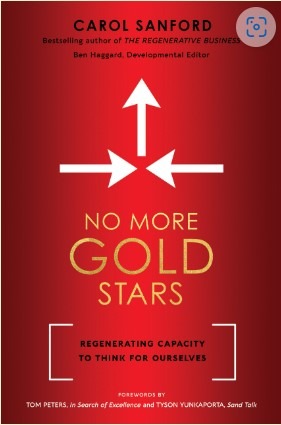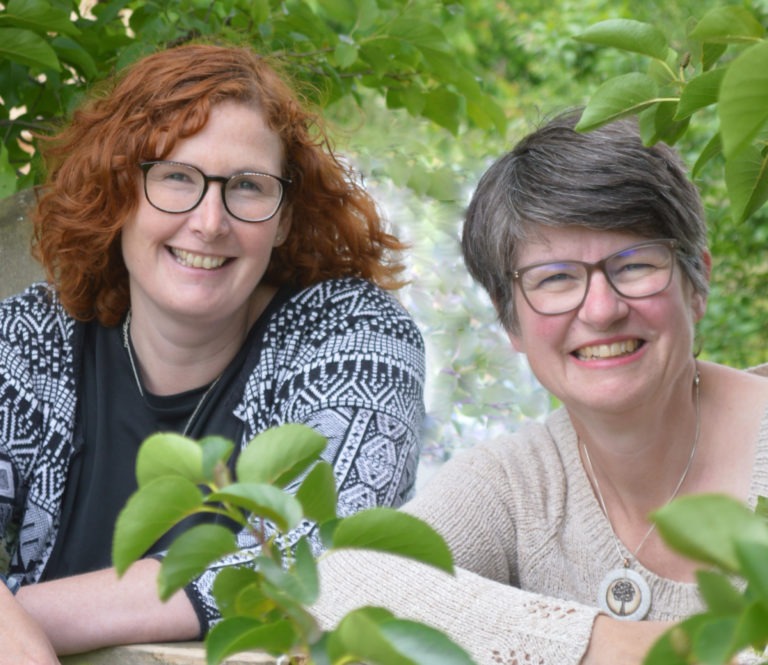
Rooted Leadership talk at Disrupt HR
Want to hear regenerative leadership explained in 5 minutes? Here’s a video of me speaking at Disrupt HR event in Nottingham. If you’d like to
It’s heartening to hear talk of values in this article about climate tipping points. I’ve long believed that simply stating the science and advocating action will not be enough to move beyond the climate crisis, let alone deal with the multiple intersecting and relating crises that we are facing.
“Sebasvari said values need to change too: “One of the examples is “being a good ancestor”, which sounds flowery but we think the right of future generations should be very concretely built into decision making processes.””
The ‘be a good ancestor’ value is seen across many indigenous cultures and we can see why – it not only ensures for the long-term survival of the group, but also benefits the short-term too, by ensuring that dangerous individualism and petty conflicts are bypassed. It’s difficult to be selfish when living with this value because the needs of your neighbour’s grandchildren (and their great-grandchildren) come to mind. It’s of course healthy for the individual too, as your own health becomes important in the survival of your own species and of other species also.
We include the good ancestor principle in our work with Think like a Tree and Think like a Forest because we can also observe it in living systems. Darwin’s theory of evolution brought the phrase ‘survival of the fittest’ to the fore, which has had the effect in our western societies of accentuating individual strength , but he also stated that ‘survival of the best adapted’ was more apt. Indeed, this is the more helpful statement when it comes to informing us on how to act.
We see in nature that collaborations are important to survival and to evolutionary leaps – the partnership between trees and mycorrhizal fungi is one such example. Being future-focused is evident in Mast years where certain deciduous trees grow an abundance of fruit so that some will evade the critters that might otherwise eat all their potential offspring.
In my book, Think like a Tree: the natural principles guide to life I state that the ‘be a good ancestor’ natural principle is the one principle we should look to when we want a short-cut to living a good live. Why is that? The main reason is that because asking yourself “will this decision make me a good ancestor?” has the potential to make decision-making much simpler – in every sphere from the personal, to business to government. It brings values, common sense and right-brain-thinking back into play in a world where all three are undervalued.
Trying to decide what biscuits to buy at the supermarket – ask yourself the good ancestor question when it comes to palm oil…
Trying to decide which hosting provider to choose for your business – ask yourself the good ancestor question when it comes to carbon emissions…
Trying to decide what action government should take in response to a terror attack – ask yourself the good ancestor question when it comes to the peace and security of future generations.
I’m not saying the answers will be straightforward – for all the above questions there are still different potential solutions, but in our western societies, welfare of future generations is almost never taken into account.
An exception is the Welsh Welfare of Future Generations Act https://www.gov.wales/well-being-of-future-generations-wales which is a great start for Wales but appears to have some problems in the execution and monitoring. (a useful critique is here https://theoneplanetlife.com/four-things-wrong-with-the-well-being-of-future-generations-act/)
To really make ‘good ancestor’ policies a success we must appeal to the hearts and values of everyone, not simply have future generations at the decision-making table whilst perpetuating the individualist, money-orientated thinking of today. We must be able to imagine, feel, taste, hear the better world that we are creating for them. We must be able to acknowledge and encourage the rush of hormones that comes when you do good things for others (alive or future-alive).
And we should also stop caveating emotional and value-led responses to the climate and ecological crises with terms such as ‘flowery’ or ‘woo-woo’ or ‘tree-hugger’. Can you really imagine Ghandi or Mandela or Pankhurst or Luther King Jr advocating ‘it may seem a bit woo-woo (or substitute whatever negative word of the day) but let’s make a change’ – no, they knew they were on the right side of history, so they owned it!
That’s what we are all called to do now – because good ancestor decisions are (and have always been) on the right side of history.
They are part of our evolutionary nature and I believe that supressing our ability to make such decisions individually and collectively, harms us as much as it harms future generations.
So next time you buy a biscuit or make a business decision, consider future generations, and spend ten minutes today making a plan of how will you remember to include them in all your decision-making from now on.
I’m Sarah Spencer, regenerative business mentor and author of Think like a Tree: the natural principles guide to life. Our regenerative business programme supports you to leave sustainable behind and embrace a new way of growing your business and your impact, inspired by living-systems (nature). Here are the details https://www.thinklikeatree.co.uk/product/regenerative-organisation-fundamentals/

Want to hear regenerative leadership explained in 5 minutes? Here’s a video of me speaking at Disrupt HR event in Nottingham. If you’d like to

In “No More Gold Stars,” Carol Sanford challenges conventional notions of achievement and success. Carol is a renowned business consultant and educator and what struck

This week has felt a little bit epic! I have found myself taking deep, exhaling breaths as I sit with the medley of feelings I have